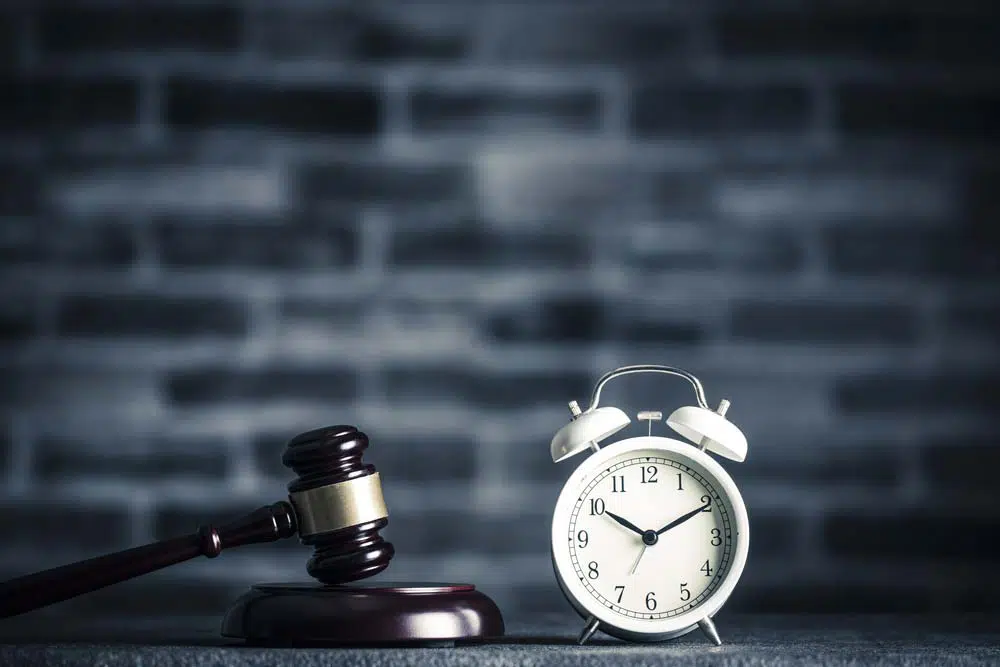If good manners are the grease to keep society’s wheels turning, then regulations and rules are the guardrails to help us all stay on track. Laws, rules, regulations, guidelines; they all provide for predictability and stability. Everyone agrees to “play” by the rules, even when we’re not playing games. That is why continuances in Virginia family law cases must be rare and “for good cause shown.”
Rule 8:14 Relating to Continuances in Virginia
Virginia’s Supreme Court has fashioned a set of rules for both sides in any legal proceeding to follow. These rules protect the plaintiff (the injured party or the one bringing forth a petition) and the defendant (the accused or the party defending against the plaintiff). One such rule is 8:14, on continuances.
First, some law basics: a continuance is just a fancy legal way to describe a postponement of a trial or court proceeding.
Either side can request a continuance, much the same way a batter can ask the umpire for time out. It is up to the umpire (in baseball) or the judge (in Virginia’s courts) to grant the delay. The umpire often gives the okay, but the umpire also does not want to delay the game. A judge often gives the okay to a continuance, but the judge does not want to clog up the court calendar with unnecessary delays. Umpires have been known not to grant timeouts. Judges sometimes do not grant continuances.
Rule 8:14 prevents either side from abusing the privilege, because the wording is so exact:
- (a) Continuance Granted for Good Cause. Continuances should not be granted except by, and at the discretion of, a judge for good cause shown, or unless otherwise provided by law. (Rule 8:14 – Continuances, Va. R. Sup. Ct. 8:14)
Because… Reasons
Why ask for a continuance? Only one reason: “for good cause.” And, helpfully, the Virginia Court System has a definition of “good cause:”
- Definition of Good Cause: Good cause exists when the need for a continuance is unforeseen, is not due to a lack of preparation, is brought to the Court’s attention in a timely manner, and does not unduly prejudice the opposing party. Posted service may be good cause.
Wait! There’s more. That same helpful court provides what we think of as “nonexamples,” reasons the judge will not grant a continuance:
- To allow continued negotiations
- Due to a lack of preparation
- Where an Officer is in school and has not given adequate advance notice
- Where any party elects to have medical care on the date of the hearing
- Where counsel schedules a hearing in another court after the hearing is set in this court (not including mandatory appearance in superior courts)
- In order to request guardian ad litem’s or home studies
How A Continuance is Requested
Setting aside the cautions that continuances are not automatic, and you really do not want to abuse the court system, if pressed to request a continuance, your attorney will follow these steps:
- Your attorney will write a letter or complete a “Continuance Request Form” provided by the Clerk of the court having jurisdiction over your case, and submit it to the Clerk by mail, fax, or hand delivery
- A continuance may be granted if the Court receives the request at least seven (7) days prior to the hearing
- Requests for continuances based upon emergencies (personal, medical, legal) are made by the judge on a case-by-case basis
- Your judge may grant a request for a continuance at the time of trial if your attorney can show that proceeding with the trial (or hearing) would not be in the best interest of justice
- A request for continuance cannot exceed sixty days
Is the Opposing Party Agreeable to your Continuance?
Your request to the judge (through your attorney, not directly) has a more likely chance of success if you and the opposing party agree to the continuance. The Virginia Supreme Court’s rule 8:14 includes this:
- If all parties to a proceeding agree to seek a continuance, the request may be made orally by one party as long as that party certifies to the judge that all other parties know of the request and concur. (Rule 8:14 – Continuances, Va. R. Sup. Ct. 8:14)
Notice the flexibility there; your attorney can simply ask out loud for the continuance if your wife’s or domestic partner’s attorney goes along with it.
The Opposing Party is Disagreeable
If, though, one party wants to push back against the delay, the Virginia Supreme Court has that covered, too, by scheduling a hearing to settle the disagreement over the continuance. That additional hearing drags out disposition of the family law matter even more. Family law matters cannot wait years to unfold. Children are growing, parents are eager to get on with their lives; such delays are seldom helpful.
Your attorney can best advise you on the wisdom of asking a Virginia judge for a continuance. And remember, like the batters in those batters boxes, your request can be denied.
For impeccable customer service, sound legal advice, and wisdom gained from years of family law practice, contact The Firm For Men. You may also telephone our office at (757) 383-9184 to speak with one of our capable attorneys.

